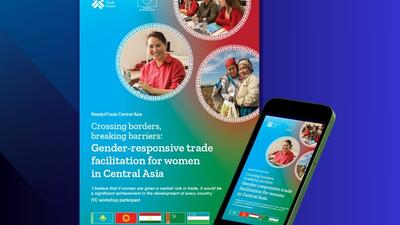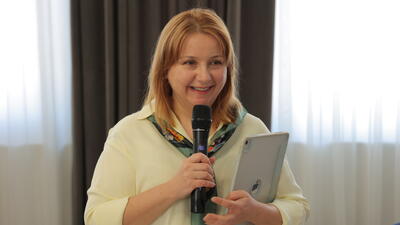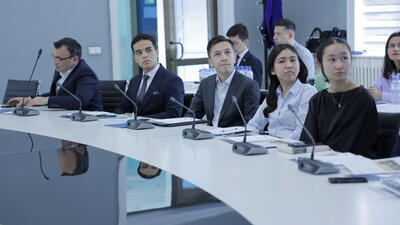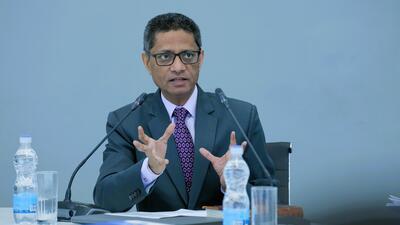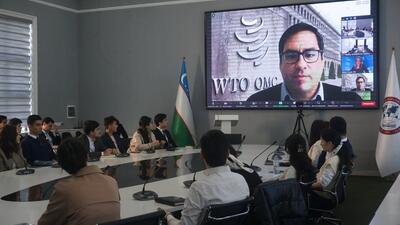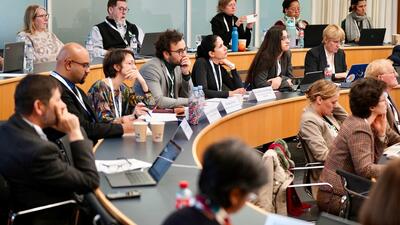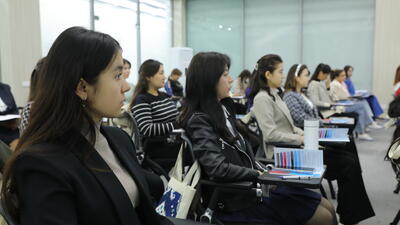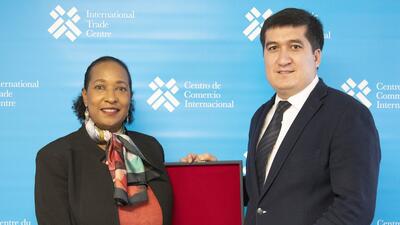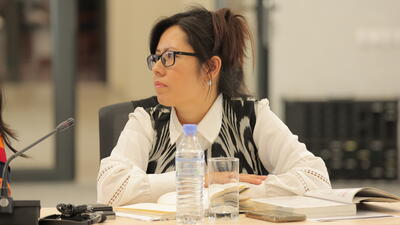

Best practices in e-QMS to help traders in Central Asia
Trade officials from Central Asia visit France and Estonia to acquire EU best practices in implementing electronic queue management systems
Twenty-five public and private-sector representatives from Kazakhstan, Kyrgyzstan, Tajikistan and Uzbekistan now know about the best practices in implementing electronic queue management systems (e-QMS) thanks to a study tour to France and Estonia.
e-QMS provide digital solutions to traditional physical queues, help optimize traffic at the border and transport terminals, reduce waiting time and streamline transport flows. The system has long been in use in several European countries, proving efficient in saving money and time for local businesses as it allows for better planning of export operations.
Customs delays are one of the major obstacles to trade within the Central Asian region and with the EU: in a recent survey by the International Trade Centre (ITC), more than 75% of all respondents mentioned long queues and delays at border crossing checkpoints as factors hindering trade. Implementing a system like the e-QMS used in Estonia and France would help eliminate these bottlenecks.
Estonia and France are good examples of successful e-QMS implementation both at the government and private sector levels. The Estonian Government has pioneered one of the most advanced e-QMS solutions available on the market and implements it at the border; while in France, the private sector has been successfully using e-QMS for streamlining business operations at logistics warehouses.
The study tour took place from 5 to 10 September 2022 and allowed Central Asian officials and experts dealing with trade, customs and logistics matters to learn from their peers in France and Estonia. The tour was organized by ITC under its Ready4Trade Central Asia project, funded by the European Union (EU).
“The experience of European Union is an example of how cross-border trade management could be streamlined with the help of digital solutions,” said Youri Skaskevitch, Programme Manager at the EU Delegation to Kazakhstan. “Both government authorities and business operators in Central Asia would greatly benefit from this EU experience if some of these solutions are applied in the region.”
Firuza Mahmudova, Chairman of the Tajikistan Association of Customs Brokers, added: “Considering the continually developing trade within the region and with the EU as well as the rapid technological advancement, introducing electronic innovations and solutions at the border is the next logical step in facilitating international trade. This initiative would significantly improve the efficiency of customs procedures.”
“This study tour served as another important step in learning about and implementing modern border management practices that help to streamline and facilitate cross-border trade operations,” said Pierre Bonthonneau, Trade Facilitation Adviser at the International Trade Centre. “Digitalization reduces time and cost of cross-border trade and increases transparency, predictability and coordination, thus boosting trade and contributing to more jobs and income.”
About the project
Ready4Trade Central Asia is a four-year EU-funded project implemented by the International Trade Centre in close collaboration with national partners, designed to contribute to the overall sustainable and inclusive economic development of Central Asia by boosting intra-regional and international trade in the countries of the region. Beneficiaries of the Ready4Trade Central Asia project include governments, small and medium-sized enterprises, in particular women-led enterprises, and business support organizations.




